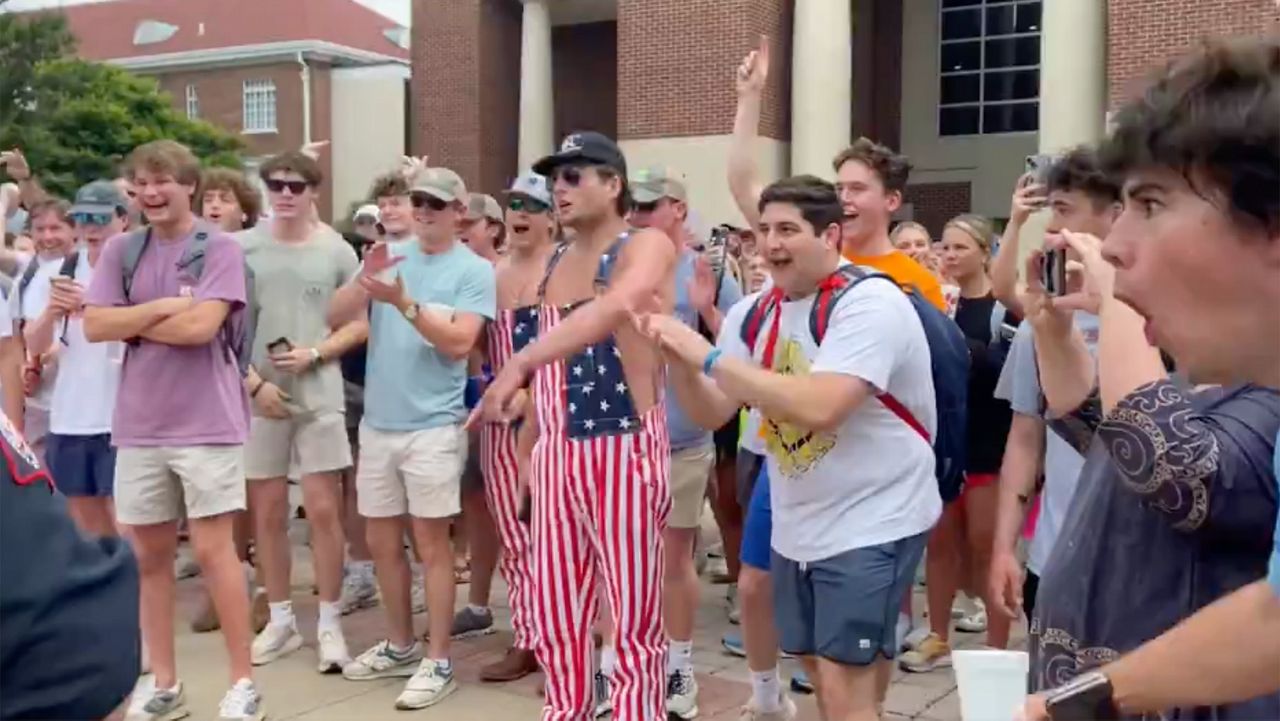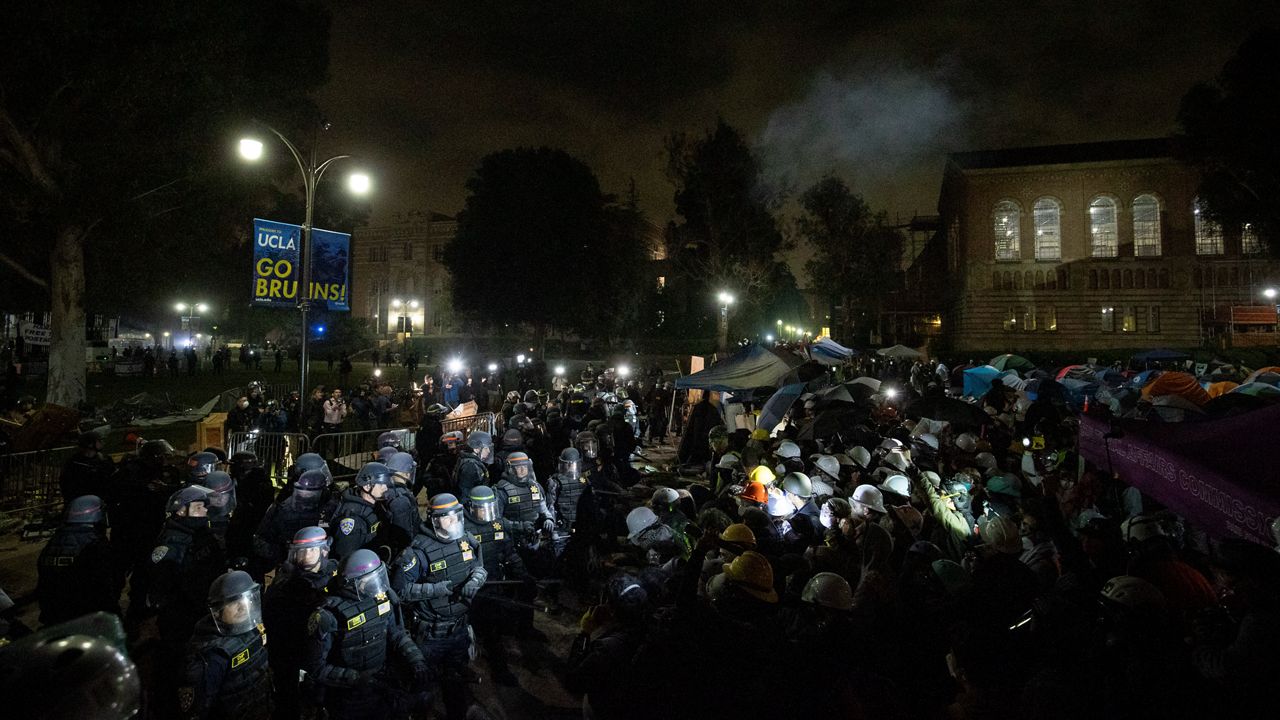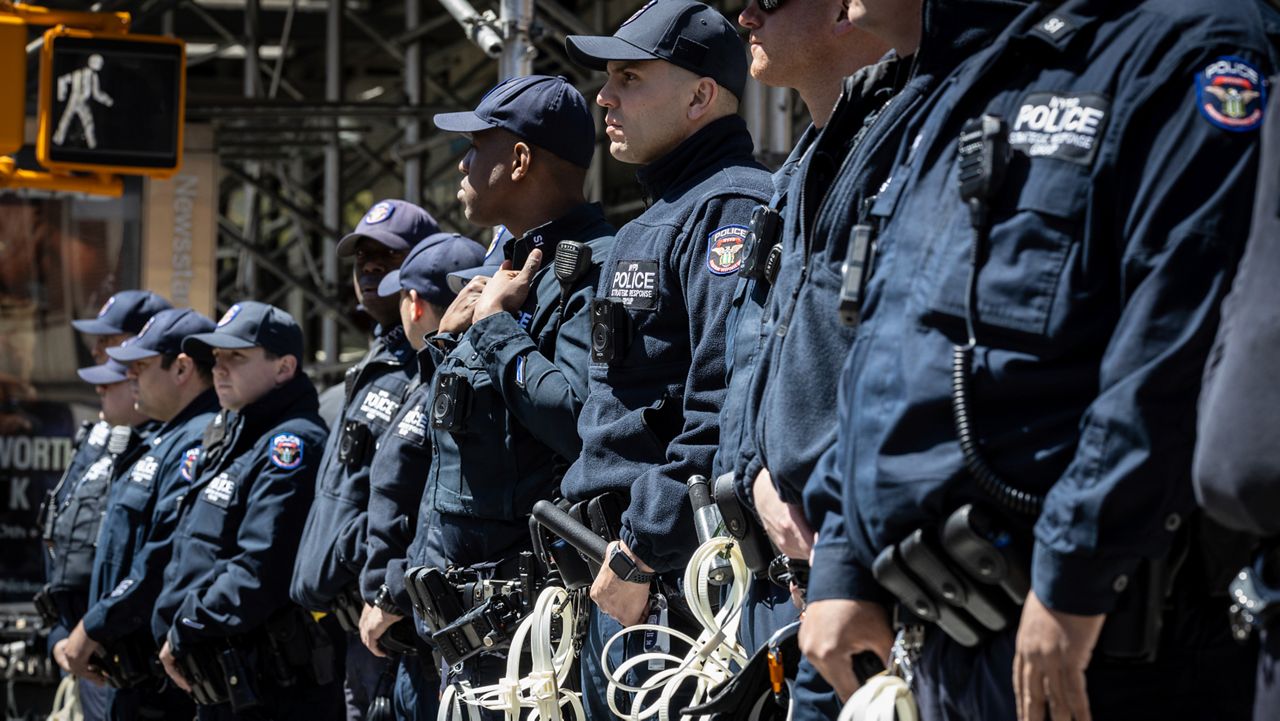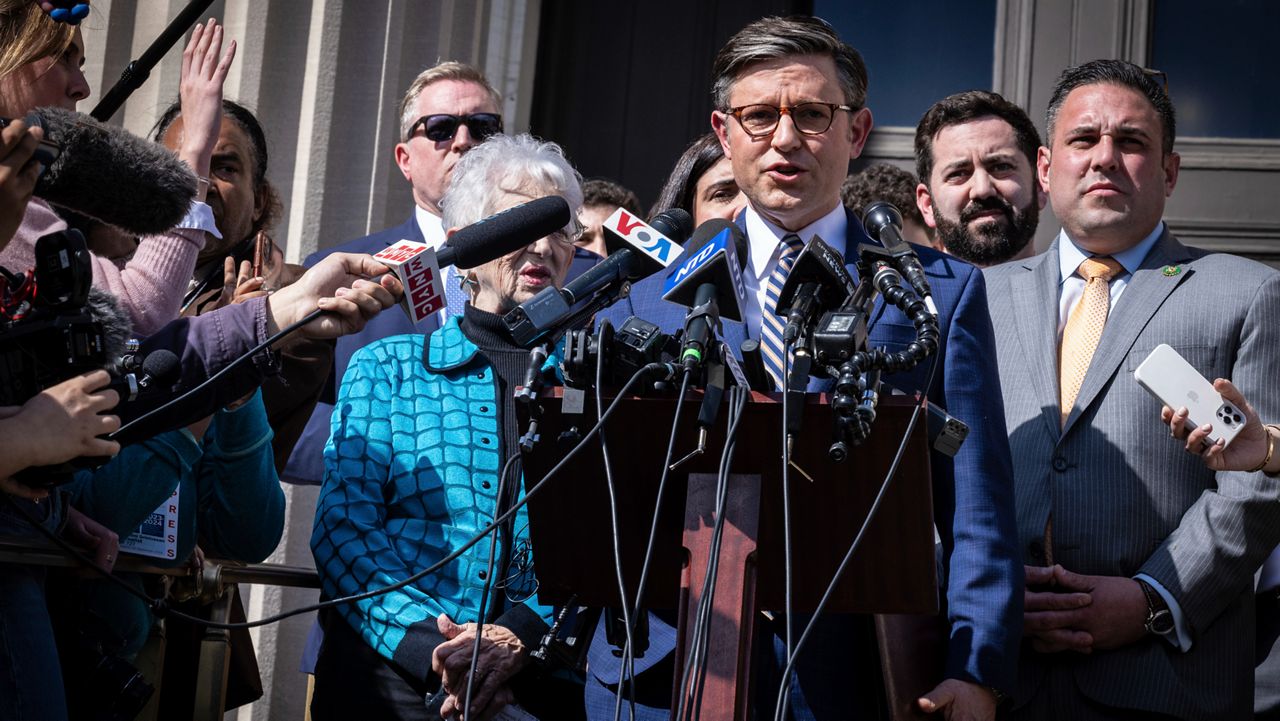Dozens of colleges and universities across the U.S. have seen protests erupt in the last few days to call for an end to what students and faculty have described as a genocide of Palestinians by Israel amid the war in Gaza that has left 34,000 Palestinians dead, millions displaced and hundreds of thousands in danger of famine.
What You Need To Know
- Dozens of colleges and universities across the U.S. have seen protests erupt in the last few days to call for an end to what students and faculty have described as a genocide of Palestinians by Israel amid the war in Gaza
- Hundreds of students in the U.S. have been arrested, virtually all for trespass, an examination of media reports and police statements show
- Outrage over the protests has stemmed from videos on social media of antisemitic rhetoric coming from some protesters, but organizers have pushed back on those characterizations, blaming individuals spreading bigotry as not representative of the larger movement
- The campus protests, beginning with the national news-making encampment erected at Columbia University, have drawn denouncements from President Joe Biden, former President Donald Trump, billionaires, congressional leaders and dozens of lawmakers in Washington and beyond from both parties
“Palestinian and Jewish liberation is intertwined. And go hand by hand,” said Mahmoud Khalil, a Palestinian student at Columbia University in New York City and negotiator for protesters, at a Tuesday press conference for students who have been arrested and suspended. Khalil was not suspended himself, avoiding the worst of the protests over fear of losing his visa status but thanked his fellow students for “protesting on our behalf.”
“Columbia has not acknowledged this pain, the pain of the Palestinian community at Columbia that is calling for the end of the genocide in Gaza,” he added
Hundreds of students in the U.S. have been arrested, virtually all for trespass, an examination of media reports and police statements shows.
Over 100 were arrested at Columbia University last week, the New York Police Department said. On Tuesday night, Columbia University President Minouche Shafik gave students camped out on campus a midnight deadline to reach an agreement with the administration and disperse. Another 47 students and 13 others were arrested at Yale University early Monday morning when police raided an encampment set up by protesters at the center of campus.
At New York University, around 120 students, faculty members and other protesters were arrested by police and herded onto correction buses on Monday night, 116 of whom were released with summonses for criminal trespass and another four who were charged with trespass, resisting arrest and obstructing governmental administration, the NYPD said.
Helga Tawil-Souri, a Palestinian-American professor at NYU, said on the left-wing news show Democracy Now! that faculty there formed a protective barrier around the students camped out in a plaza, matching news reports of the protest. When the NYPD arrived, it was those faculty who were first arrested.
“The police force kind of forced their way into the sort of plaza where the students were, where the students had their tents set up and extremely violently kind of took down all the tents, were throwing chairs around and arrested all the students that were there,” Tawil-Souri said. “We're told that ‘oh, the disruption was part of the protest,’ right, and the chanting and the singing, but you know, it's New York City, it's really loud, there was construction right across the street. So it's really hard for me to understand that that was the sort of disruption.”
NYU said in a statement they were concerned non-NYU students joining the protest could lead to individuals getting hurt so they called in the NYPD, who said water bottles and a chair were thrown at them. The NYPD used mace on protesters and journalists alike as they arrested 120 people. No one arrested was charged with a violent crime.
Tawil-Souri noted that many protesters were Jewish and said the police moved in during Muslim evening prayers.
“The students feel very sort of spirited in the sense of they want to kind of continue,” she said. “For them, it's about ‘okay, fine, you took us down, but we're gonna continue. We have the right to protest, we have the right to academic speech, we have the right to free speech and we have the right to stand up for our pro-Palestinian voices.’”
Outrage over the protests has stemmed from videos on social media of antisemitic rhetoric coming from some protesters, but organizers have pushed back on those characterizations, blaming individuals spreading bigotry as not representative of the larger movement. The protests at Columbia, NYU and elsewhere were participated in and helped organized by Jewish groups and students. On Monday, student protesters camped on Columbia University’s campus held a Passover seder.
“I asked the White House, Jewish members of Congress and all those who speak on behalf of Jewish safety and the Jewish people to listen and hear our message,” said Soph Askanese at the Columbia University and Barnard College students’ press conference on Tuesday. Askanese said they were arrested for trespassing and suspended from campus indefinitely. “Come see our camp. Come to a Shabbat, come break bread with us or, this week, break some matzah.”
On Tuesday, the pro-Palestinian organization Jewish Voice for Peace said in a statement they were planning a “major disruption” and “civil disobedience” that had the goal of “the mass arrest of Jews” outside the New York home of Senate Majority Leader Chuck Schumer, D-N.Y. Many were arrested, according to local journalists.
The campus protests, beginning with the national news-making encampment erected at Columbia University, have drawn denouncements from President Joe Biden, former President Donald Trump, billionaires, congressional leaders and dozens of lawmakers in Washington and beyond from both parties. Two Republican senators from other states and Anti-Defamation League CEO Jonathan Greenblatt called for the National Guard to be sent into Columbia University’s New York City campus to rein in the largely peaceful protests.
Speaker Mike Johnson, R-La., planned to hold a press conference at Columbia University on Wednesday to denounce the protests. The increase in protest activity on campuses has coincided with Johnson’s ushering through Congress of a foreign aid package that included $26 billion in U.S. military aid for Israel’s war effort. The Senate approved it on Tuesday night and sent it to Biden’s desk.
The protests also come as Israeli President Benjamin Netanyahu has pledged a ground offensive in Rafah, a city in southern Gaza where the vast majority of the enclave’s population has fled. Strikes there over the weekend killed 22 people, including 18 children. And on Tuesday, the U.N. reported the discovery of mass graves near two hospitals in Gaza with hundreds of bodies, including some who were found with their hands tied and stripped of their clothes. The U.N. human rights chief said, if verified, the mass graves would amount to war crimes.
Encampments continue to pop up as protests rise across the U.S.
On Monday night at California State Polytechnic University, Humboldt in northern California, protesters occupied a building and physically clashed with police armed with riot shields and batons, which were used to batter the protesters as they shoved back and wielded an empty water jug, according to video footage published by a local journalist. Three were arrested, the university said. The protesters remained barricaded in the building as of Tuesday afternoon, according to an Instagram post from local organizers and reporting from the local Times-Standard newspaper.
More arrests were made at the University of Minnesota-Twin Cities on Tuesday after police tore down an encampment on campus, according to activists there. Hundreds rallied to the Minnesota campus in the afternoon to demand their release, which they were later in the day.
Encampments popped up at U.C. Berkeley, the University of Pittsburgh, the University of Rochester, the Massachusetts Institute of Technology, Emerson College, Tufts University, the New School, University of Michigan, the University of New Mexico and others, according to activists, local media reports and student news outlets.
Some of the protests have led to universities moving classes online as the end of the spring semester nears. Harvard University suspended a pro-Palestinian group and restricted access to Harvard Yard after a rally on Friday.
The protests are in solidarity with the Palestinian people, with many calling on their institutions to end investments into weapons manufacturers Israeli companies, as well as calling for an end of the conflict and denouncing what protesters describe as a genocide.
“We refuse to accept the mass slaughter of Palestinians as normal or acceptable,” Columbia Students for Justice in Palestine said in a statement on Monday. “As elected officials and media outlets weaponize the concept of ‘campus safety,’ remember that there are no universities left in Gaza.”
Last week, the U.N. decried the “systematic destruction” of the Palestinian education system in Gaza, reporting 5,800 students and teachers had been killed. Over 80% of schools in Gaza were damaged or destroyed, U.N. experts said.
“It may be reasonable to ask if there is an intentional effort to comprehensively destroy the Palestinian education system, an action known as ‘scholasticide’,” the experts said. “Israa University, the last remaining university in Gaza was demolished by the Israeli military on 17 January 2024.”
In March, former U.S. Ambassador to Algeria and Syria Robert Ford, who served under five presidents, told Spectrum News the destruction of universities in Gaza could be evidence of targeting Palestinians’ cultural identity, making “it easier to argue that it is a genocide.”
The Associated Press contributed to this report.









